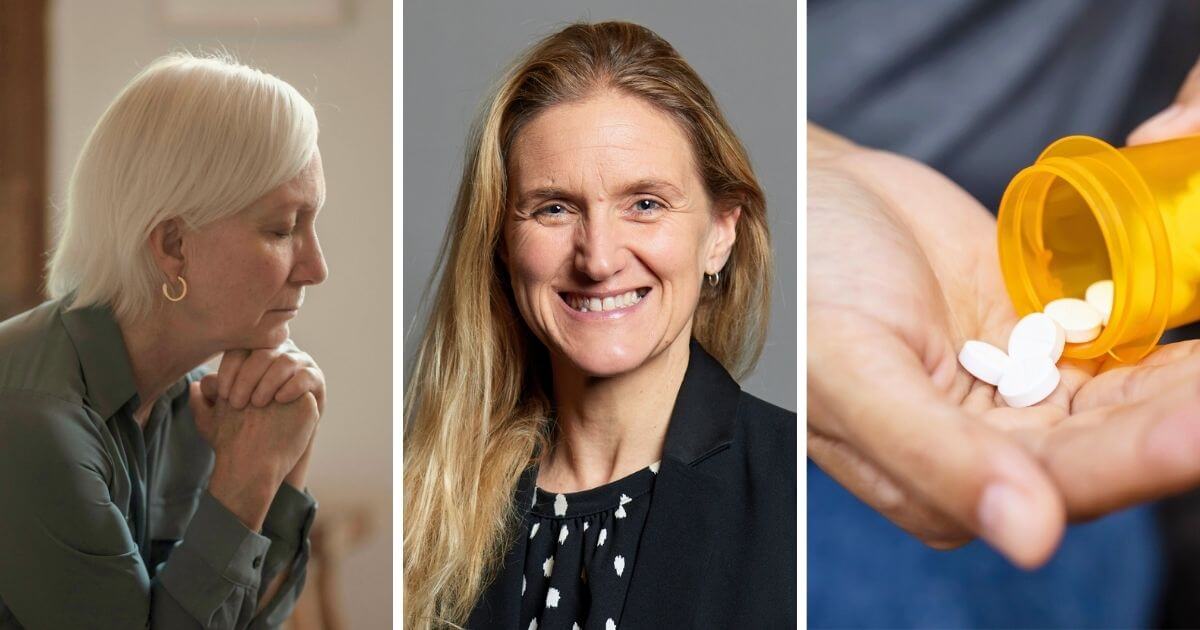Dozens of Labour MPs are backing proposals to widen the scope of Kim Leadbeater’s assisted suicide Bill to apply to those who are not terminally ill.
This is despite assurances from Leadbeater that making assisted suicide legal will not lead to a ‘slippery slope’ whereby a law with supposedly restrictive criteria for access to assisted suicide is then amended at a later date or later interpreted in a way that allows wider access to assisted suicide.
According to the Telegraph, a group of 54 cross-party MPs are believed to be campaigning for Leadbeater’s assisted suicide Bill to apply not only to people who are terminally ill, but also to those who are “incurably suffering”. These include “as many as 38 Labour” MPs, 13 of whom are in Government positions.
The news that these MPs were backing a more radical change in the law came shortly after Labour MP Kim Leadbeater, who is expected to table her assisted suicide Bill on 16 October, insisted that her Bill will only apply to those with terminal illnesses.
“I’m really clear. This is about people who are terminally ill”, she said.
When asked about the danger of a slippery slope, Leadbeater said “Wherever a law has been introduced in other countries and it’s got strict limited criteria with proper safeguards and protections, it hasn’t been widened. So there is a perception that’s the case but it isn’t the case”.
“Where there are countries where the law is broader, that was always how it started. So I think there is a perception around the slippery slope concept, which actually isn’t reality”, she added.
An Assistant Professor of International Relations and International Law at Leiden University and a research fellow at the University of Oxford, Yuan Yi Zhu, pointed out that just “three days ago Kim Leadbeater was telling the press there wouldn’t be a slippery slope expansion of euthanasia to non-terminal illness. Meanwhile dozens of her colleagues are pushing for exactly that”.
Widening of assisted dying law in Oregon and Canada
Leadbeater’s claim that the slippery slope isn’t real is undermined, not only by MPs from her own party already attempting to widen the scope of her Bill that has not even been released yet, but also by evidence from a number of jurisdictions with laws that originally had supposedly restrictive criteria for access to assisted suicide, but have subsequently widened the criteria under which assisted suicide and/or euthanasia can happen.
Assisted suicide campaigners, Dignity in Dying, cite Oregon as a model for rolling out legislation in the UK, claiming that it provides for assisted suicide under strict criteria and with several safeguards.
A review of the assisted suicide data from Oregon over the last 25 years, published by leading academics in the journal BMJ Supportive & Palliative Care, suggests that since the law was introduced in Oregon, the law has subsequently been interpreted to allow for wider access to assisted suicide.
The academics found that “[s]ince 2010, patients with a range of non-cancer diagnoses have received [physician assisted suicide] including non-terminal illnesses such arthritis, arteritis, complications from a fall, hernia, sclerosis, ‘stenosis’ and anorexia nervosa”.
Residency requirements for assisted suicide in the state of Oregon were removed in 2022, leading to concerns about ‘suicide tourism’.
Canada’s legislation that allows assisted suicide and euthanasia previously had a requirement that the natural death of those applying for euthanasia or assisted suicide be “reasonably foreseeable”. However, in 2021, the Canadian Parliament repealed this requirement. This took place only five years after the original legislation allowing euthanasia and assisted suicide was passed in 2016. Legislation was introduced in February 2024 so that euthanasia and assisted suicide would become legal on the grounds of mental health alone from March 2027.
At a parliamentary event last November, Alex Schadenberg, Executive Director of the Euthanasia Prevention Coalition in Canada, told parliamentarians that “most people die by euthanasia because they are going through a difficult health condition, and they are feeling depressed, lonely or experiencing feelings of hopelessness and they believe that their life has no purpose”.
During a short question and answer session after his presentation, one parliamentarian questioned these shocking instances and suggested that such things would not happen under any proposed assisted suicide law in Britain.
Schadenberg replied, “That’s exactly what they said in Canada”.
“When we were debating this in 2015, the Netherlands stories and Belgium stories were constantly talked about, and the response was ‘we’re Canadians, that’s not going to happen’.”
But “that’s what happened” he added.
‘Once you cross that line, you’ve crossed it forever’
Before the announcement of Leadbeater’s assisted suicide Bill, Justice Secretary Shabana Mahmood said “I don’t intend to support it”.
“I know some MPs who support this issue think, ‘For God’s sake, we’re not a nation of granny killers, what’s wrong with you’… [But] once you cross that line, you’ve crossed it forever. If it becomes the norm that at a certain age or with certain diseases, you are now a bit of a burden… that’s a really dangerous position”.
Conservative Party leadership candidate Robert Jenrick also expressed fears about a new law. Speaking at the party conference in September, Jenrick said “I’m very concerned about the unintended consequences of changing the law”, making explicit reference to “the very severe, unintended consequences” of making assisted suicide and euthanasia legal in Canada.
Spokesperson for Right To Life UK, Catherine Robinson, said “Just days ago, Kim Leadbeater claimed that wherever assisted suicide had been made legal with safeguards, ‘it hasn’t been widened’. Incredibly, she said this even as MPs within her own party were already seeking to widen the legislation”.
“Not only are 54 MPs pushing for the scope of the Bill to be widened, but her assertion that the assisted suicide law in other jurisdictions has not widened is demonstrably untrue”.
“In 2021, the Canadian Parliament repealed the requirement that the natural death of those applying for assisted suicide be “reasonably foreseeable”. This took place only five years after the original legislation allowing euthanasia and assisted suicide had been passed in 2016″.
“Similarly, residency requirements for assisted suicide in the state of Oregon were recently removed leading to concerns about ‘suicide tourism’ and the interpretation of terminal illness in Oregon has been broadened to include anorexia, arthritis, hernias and diabetes”.












